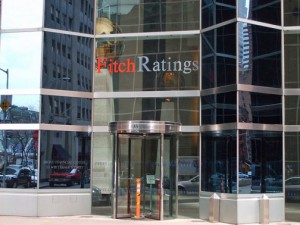Fitch places Puerto Rico debt on negative watch


In its assessment, Fitch also pointed to the fact that after showing signs of stabilizing last year, Puerto Rico’s recent economic performance has shown some weakening.
In what constitutes yet another, but expected, blow to Puerto Rico’s fragile credit condition, Fitch Ratings announced Thursday it has placed the island’s general debt, as well as that of several government agencies, on negative watch.
The “Rating Watch Negative” classification reflects “Fitch’s expectation of a significant increase in the commonwealth’s estimated operating imbalance for the current and coming fiscal years, based on reported revenue results through the first half of the current fiscal year and public statements by the new administration,” the agency said in a statement, noting it will make a final decision early next month after it meets with local government officials.
Fitch Ratings is monitoring the ‘BBB+’ ratings of the Commonwealth’s general obligation bonds, the Puerto Rico Building Authority government facilities revenue bonds guaranteed by the commonwealth, the Puerto Rico Aqueduct and Sewer Authority commonwealth guaranty revenue bonds, and the Employees Retirement System of the Commonwealth of Puerto Rico pension funding bonds.
“The Negative Rating Watch is based on the economic and revenue underperformance which Fitch believes has meaningfully increased the size of the operating imbalance for the current fiscal year and the gap the commonwealth will need to address as it develops a budget for 2014,” the agency said.
“Fitch does not believe that a balanced budget will be achieved in fiscal 2014, and meeting this goal will remain challenging thereafter,” it added. “Despite four years of aggressive cost cutting and other fiscal restructuring measures by the last administration, economic recovery and budget balance have proven elusive.”
In its assessment, Fitch also pointed to the fact that after showing signs of stabilizing last year, Puerto Rico’s recent economic performance has shown some weakening. It credited the former Fortuño administration for taking steps to restructure fiscal operations and stimulate the economy, saying the new administration appears to be following suit.
Economists weigh in
For Economist Vicente Feliciano, president of Advanced Business Consulting, “fiscal adjustment without structural reforms in the economy will be progressively eroded by a weak economy.”
“It is what happened with Law 7. Fiscal stimulus can give the economy a breather, but ultimately will fail because of the fiscal constrains,” he said. “Both fiscal adjustment and structural reform must be tackled simultaneously.”
Meanwhile, Economist José Joaquín Villamil, president of Estudios Técnicos, said Fitch’s action was expected.
“Fitch had indicated that it was willing to wait to evaluate government debt so that the new administration could organize itself. After almost two months, the news coming out of government is not good,” he said. “The deficit is much higher than had been anticipated prior to the election and economic growth prospects continue to be very weak, partly as a result.”
In addition, as reflected in the Government Development Bank’s recent report, the pension problem is even worse than suspected with an actuarial deficit of $35 billion and only six cents available for every dollar in benefits to be paid, he said.
“Given the above, Fitch’s negative outlook for GOs, PRASA and the Pension System shouldn’t surprise anyone,” he said.
Pension woes and future growth challenges
In its report, Fitch took note of that shortfall in the government’s pension systems, saying “the commonwealth’s ability to take action that supports the solvency of the pension system without significantly increasing the demands that pensions place on the budget will be critical to long-term rating stability.”
Puerto Rico faces a longer-term question of how to grow and diversify its economy, increase employment and workforce participation levels, enhance wealth and income, and address contraction in its existing pharmaceutical and electronic-producing industries, Fitch expressed.
“The ultimate test of the success of future policy will be whether or not Puerto Rico is able to find a sustainable path to economic growth, growth that is necessary to support the commonwealth’s high debt levels and other long-term liabilities, as well as to achieve and maintain a structurally balanced budget,” it noted.














